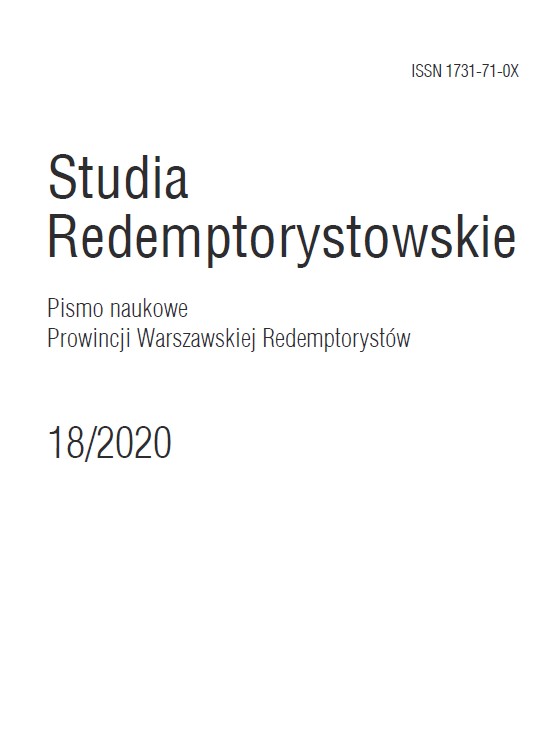Chrystus ubogi wzorem ewangelicznej rady ubóstwa dla osób konsekrowanych i instytutów życia konsekrowanego
Poor Christ – the model of the evangelical counsels of poverty for consecrated persons and institutes of consecrated life
Author(s): Rafał KamińskiSubject(s): Christian Theology and Religion, Biblical studies, Systematic Theology, Canon Law / Church Law, Sociology of Religion
Published by: Warszawska Prowincja Redemptorystów
Keywords: poverty; evangelical counsels; consecrated life; economy; charism;
Summary/Abstract: From the Christocentric vision of the Church, church law and consecrated life it reveals the poor Christ, who becomes a model of life according to religious professions both for individual consecrated persons and entire communities forming institutes of consecrated life, as well as for religious life, treated as a permanent state of life in the Church. The counsel of poverty, which is among the three vow by a religious to God and to the Church, is thus mirroring the life of Christ, who stands at the center of his life and his community. For a religious, poverty is supposed to be a way to achieve evangelical perfection, and for the community in which he lives, a way to realize his charism, a means of testimony to the world and a tool of solidarity and brotherhood with those in need. The inspiration for this article is a document from the Congregation for Institutes of Consecrated Life and Societies of Apostolic Life from 2018 “Economics in the service of charism and mission”. Referred to as “Orientations”, it should be considered together with the “Guidelines for the management of goods in institutes of consecrated life and associations of apostolic life” issued earlier (in 2014). Both documents are the fruit of international symposiums organized by the Vatican Dicastery dealing with the consecrated life. The practical implementation of the poverty varies depending on the charism of the community, which is the basis of its faithfulness. The founding charism, character and type of the institute’s ministry determine the style of its life. Some of the norms regulating it are found in universal law, while others should be detailed in the own law of the individual institutes. In order to show the basis for following the model of the poor Christ, it was necessary to mention and explain some aspects of canonical norms relating to the personal life of consecrated persons and addressed to the whole community and religious life as such.
Journal: Studia Redemptorystowskie
- Issue Year: 2020
- Issue No: 18
- Page Range: 419-446
- Page Count: 28
- Language: Polish

